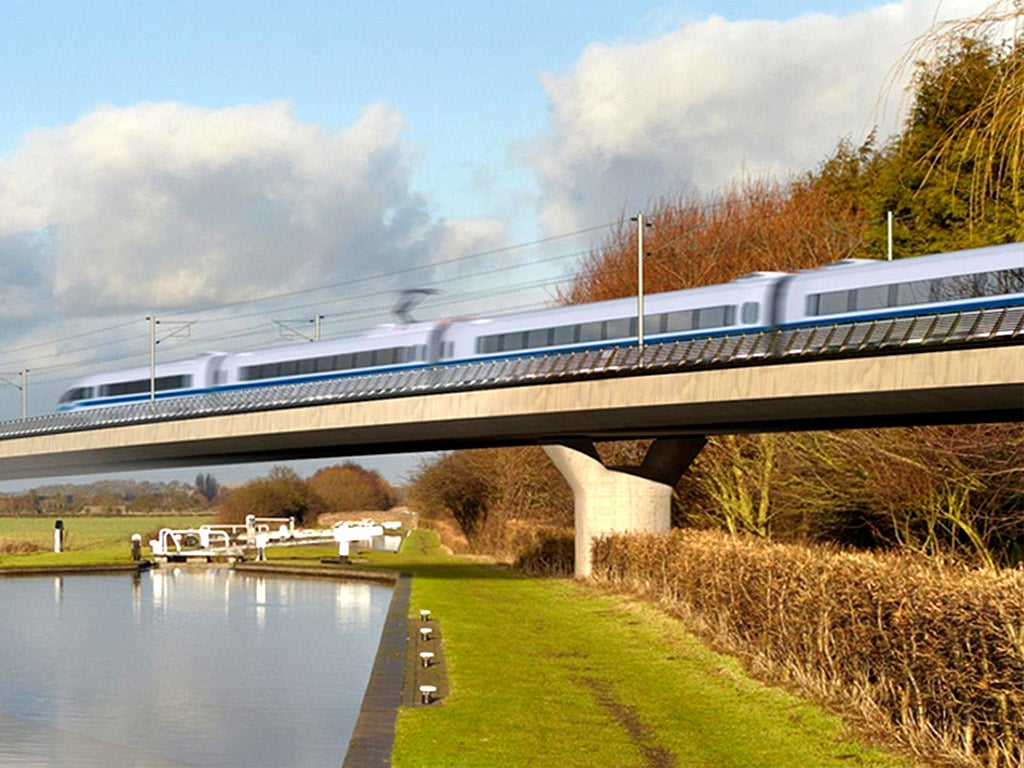Employ disadvantaged people to build HS2
I would like to see this project follow the French example, but go much further with it


Your support helps us to tell the story
From reproductive rights to climate change to Big Tech, The Independent is on the ground when the story is developing. Whether it's investigating the financials of Elon Musk's pro-Trump PAC or producing our latest documentary, 'The A Word', which shines a light on the American women fighting for reproductive rights, we know how important it is to parse out the facts from the messaging.
At such a critical moment in US history, we need reporters on the ground. Your donation allows us to keep sending journalists to speak to both sides of the story.
The Independent is trusted by Americans across the entire political spectrum. And unlike many other quality news outlets, we choose not to lock Americans out of our reporting and analysis with paywalls. We believe quality journalism should be available to everyone, paid for by those who can afford it.
Your support makes all the difference.I love “crazy” ideas when respectable people with years of experience put them forward. So here is Mr Jim Steer of Greengauge 21, a body which researches and develops the concept of high-speed rail networks, arguing that thousands of disadvantaged people – from the physically disabled to those from troubled backgrounds – should be given jobs on the construction of High Speed 2 (HS2), the high‑speed railway that is to be built between London and the West Midlands and points further north. An industry leaders’ group backs the idea.
By a happy coincidence, the Government has prepared the way for this sort of approach by announcing plans for a new college to train the next generation of so-called “world-class” engineers to work on the construction of HS2. The college is to provide the specialised training and qualifications needed for high-speed rail. It will be the first new incorporated further education college in more than 20 years.
There is a precedent for Mr Steer’s proposal – the Rhine‑Rhone line, built and completed in France, where a target was set to recruit 12 per cent of the workforce from various groups in the community. A fifth of these had been on social welfare; just under half had been long-term unemployed; a 10th were aged over 50, and a small fraction had minor criminal records.
I would like to see HS2 follow the French example, but go much further with it. For the employment of a large proportion of disadvantaged people on the building of HS2, say well above 20 per cent, would have two desirable results. It would, surely, be a source of great pride to those so employed and would transform their job prospects. And at the same time, it would contribute to persuading society at large to take a more sympathetic attitude to the less favoured members of the community.
Join our commenting forum
Join thought-provoking conversations, follow other Independent readers and see their replies
0Comments